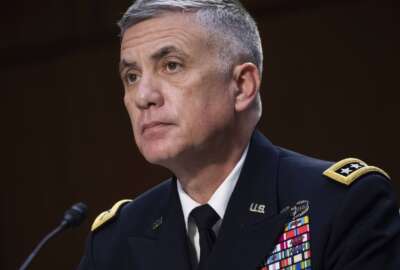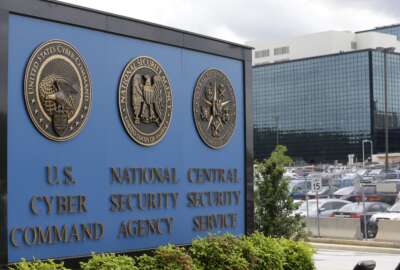Sulmeyer looks to extending SOCOM model to boost CYBERCOM readiness
"I believe a range of options should be considered, including extending aspects of the U.S. Special Operations Command model to U.S. Cyber Command," said.
If confirmed as the first-ever assistant secretary of defense for cyber policy, Michael Sulmeyer said he would consider a “range of options” to address persistent cyber mission force readiness challenges, including applying some aspects of the U.S. Special Operations Command model to U.S. Cyber Command.
Lawmakers have legislatively modeled Cyber Command after SOCOM, given how successful the combatant command has been in providing the DoD with specialized capabilities that the military services don’t have the capacity to deliver on their own.
Using the SOCOM model for CYBERCOM, however, hasn’t significantly improved cyber force mission readiness. CYBERCOM relies on the military services to provide digital personnel, which has led to readiness issues in the command since the services run their own recruitment and training systems and digital warriors tend to have inconsistent knowledge and experience when they are sent to CYBERCOM.
Given the challenges, lawmakers are resurfacing the argument for creating a separate cyber force — the idea that Pentagon officials have widely rejected.
“I understand that the Department of Defense is currently evaluating alternatives to generate cyber forces in ways that will address these readiness concerns. While I do not wish to preempt that analysis, I believe a range of options should be considered, including extending aspects of the U.S. Special Operations Command model to U.S. Cyber Command,” Sulmeyer, who currently serves as the Army principal cyber advisor, said.
“If confirmed, I would look forward to contributing to the decision-making process about new approaches to cyber force generation and to work with Congress in doing so.”
The Pentagon officially announced the creation of the office of assistant secretary of defense for cyber policy in March and President Joe Biden tapped Sulmeyer to lead the office.
During his nomination hearing Thursday, Sulmeyer said the DoD is utilizing Section 1535 of the 2024 defense policy bill to streamline policies and procedures, which will yield positive results for cyber mission force readiness.
The 2024 defense bill requires the DoD to ensure that service members are properly trained and in compliance with the standards required for their work roles prior to sending them to CYBERCOM. The legislation also requires the DOD to ensure that pay and the period of obligated service is uniform across the military departments for all cyber mission force related positions.
In addition, the bill requires the CYBERCOM commander to establish a pilot program that would contract cyber personnel to support critical work roles in the cyber mission force. The commander has three years to decide whether to extend, transition to a permanent program or terminate the pilot.
“I understand that the Department is presently undertaking the work required by section 1535, and if confirmed, I will make it a top priority to synchronize this effort with whatever results may come from the CYBERCOM 2.0 effort,” said Sulmeyer.
Last year, Congress directed CYBERCOM to assess the readiness of the military branches and their ability to provide forces to the command. The leadership has been thinking through what changes are necessary to build CYBERCOM 2.0. and DoD’s persistent readiness problems in the cyber mission forces is what’s ultimately driving the effort.
If confirmed, Sulmeyer said he would start with standardizing the enabling issues that contribute to cyber mission force readiness.
“I would begin with policies and processes highlighted in section 1535 of the FY2024 National Defense Authorization Act that, if standardized, can lead to improved service personnel readiness. I understand that the services often use different tracking databases and so using existing tools to gain Department of Defense-wide insights will be a key priority. If confirmed, I will work with U.S. Cyber Command and the services to refine the policies and processes for improving readiness within the Cyber Mission Force. ”
Meanwhile, lawmakers are getting more serious about the idea of a separate cyber force. The House recently passed its version of the 2025 defense policy bill with a provision that would require the Defense Department to commission an independent study on the feasibility of creating a separate branch for cyber. A similar provision made it into the Senate Armed Services Committee’s version of the defense policy bill.
Copyright © 2025 Federal News Network. All rights reserved. This website is not intended for users located within the European Economic Area.







